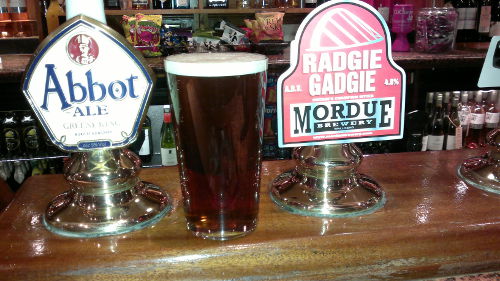According to CAMRA, 3 million fewer UK adults visit the pub on a regular basis as a result of the beer duty escalator, which increases tax on alcohol by 2% above the inflation rate each year. This, in turn, is being blamed as a major contributory factor for the increase in pub closures. Therefore, following a 106,000 signature e-petition, CAMRA organised its biggest ever campaigning event, as over 1,200 members lobbied Parliament yesterday, demanding an end to this damaging piece of legislation.
The Government says that over the next two years, beer tax revenue is expected to fall by £100 million, yet beer drinkers will still have to pay the 5% duty increase. The escalator was introduced in 2008, in a completely different economic environment. Since then, according to CAMRA, tax on beer has increased by more than 40% and now the UK has one of the highest rates of beer tax in Europe. In addition, over 5,800 pubs have closed, as they cannot absorb increased costs like the supermarkets. Therefore, is it really viable in a time of financial instability, to persevere with a policy which oversees falling pub revenues and job losses?
Ironically, real ale is in very good health in the UK, with breweries opening all the time. In fact, the pub and brewing industry is worth nearly £20 billion to the UK economy, with approximately one million people employed, around 300,000 of whom are under 30 years’ old. So does it not make more sense to support this sector and invest in British jobs? These are points raised in Parliament by the Chairman of the all-party Save the Pub group, Lib Dem MP Greg Mulholland. He said that the escalator "does not makes sense economically or socially" and was "doing damage to a great British industry".
As other sectors are being squeezed financially, the argument in favour of the beer duty escalator is that the brewing industry should also pay its way and contribute more. However, the evidence surely shows that this is a retrograde step for economic growth. It does not even tackle the problems of alcoholism, as cheap mass-produced high-strength lager, cider and vodka-based drinks, often seen as fuelling binge and chronic drinking, are still sold in supermarkets and shops. The minimum alcohol price plan may curtail this, but we will have to wait and see until the government has completed its 10-week consultation period.



A question: is the beer tax escalator applied to the wholesale price or retail price of a pint of beer? If it’s the former, then I would expect the impact of the tax not to account for the full scale of pub beer price increases we’ve seen over the last few years. There must be other contributing factors?
Hi Andrew
The duty is paid as soon as beer leaves the brewery, so really before the wholesalers or retailers are involved. Unfortunately, small brewers and pubs don’t have a choice but to pass the costs on to consumers, whereas supermarkets can often absorb these costs due to their economies of scale. Therefore, they can continue to sell alcohol cheaply, which further widens the disparity in prices.
Cheers
Robin
Thanks for clarifying Robin. In an article published in the Guardian in January 2011 Beer: how much would you pay? an independent brewer breaks down how much it costs him to make each pint and enough profit to sustain the brewery as a going concern. What’s interesting is the amount of duty: 20p. Even if that amount has doubled it doesn’t account for the increases we’re seeing in pub beer prices. I would suggest the biggest culprits are the pubs themselves.
Hi Andy
It’s also worth bearing in mind that pubs aren’t subject to the same VAT regulations as supermarkets, i.e. are not exempt, so are doubly hit by taxation.
The duty escalator must present a huge challenge to the pub industry in the current economic climate. On the one hand, hiking up prices is not going to encourage pub goers. On the other hand, according to some latest figures, UK pubs are now selling a billion fewer pints a year at 3.9 billion pints, down from five billion in 2008.
The British Beer & Pub Association argue that the escalator does not bring in any additional revenue for the Treasury and that freezing the duty would save over 5,500 jobs. Not only that, but by safeguarding jobs and keeping businesses open, the Treasury will benefit from the resultant corporation tax and employment taxes etc..
I’m not sure if the Hardknott Brewery business featured in the Guardian article is representative of the typical brewery / (tied) pub business in the UK – are they subject to the same number of direct competitors as other regions? London is, of course, a completely different ball game, but thanks to Wetherspoons, it is still possible to get a decent pint without remortgaging your house!
“… thanks to Wetherspoons, it is still possible to get a decent pint without remortgaging your house!”
I’ll second that!